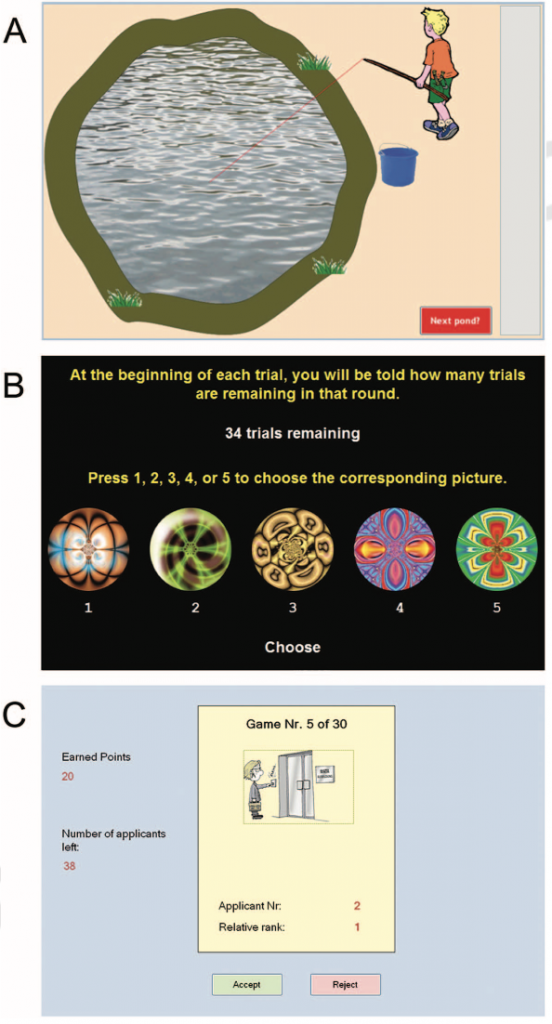Andreas Wilke and Peter Todd have organised a special issue of Evolutionary Behavioral Sciences that includes a number of contributions showcasing examples of methodological diversity in the field, including the use of agent-based simulations, field work with non-human animals, and laboratory studies, to name but a few.
Bettina von Helversen, Andreas Wilke, Greg Samanez-Larkin, and I contributed a piece on the lack of convergent validity between measures of foraging (i.e., search for resources) using laboratory tasks. This work highlights how latent variable (structural equation) modeling can help understand commonalities and differences across paradigms that have been used in the behavioural sciences to understand the cognitive processes and individual differences underlying foraging behavior.

Foraging, exploration, or search? On the (lack of) convergent validity between three behavioral paradigms
Recently it has been suggested that individual humans and other animals possess different levels of a general tendency to explore or exploit that may influence behavior in different contexts. In the present work, we investigated whether individual differences in this general tendency to explore (exploit) can be captured across three behavioral paradigms that involve exploration–exploitation trade-offs: A foraging task involving sequential search for fish in several ponds, a multiarmed bandit task involving repeatedly choosing from a set of options, and a sequential choice task involving choosing a candidate from a pool of applicants. Two hundred and sixty-one participants completed two versions of each of the three tasks. Structural equation modeling revealed that there was no single, general factor underlying exploration behavior in all tasks, even though individual differences in exploration were stable across the two versions of the same task. The results suggest that task-specific factors influence individual levels of exploration. This finding causes difficulties in the enterprise of measuring general exploration tendencies using single behavioral paradigms and suggests that more work is needed to understand how general exploration tendencies and task-specific characteristics translate into exploratory behavior in different contexts.
von Helversen, B., Mata, R., Samanez-Larkin, G. R., & Wilke, A. (2018). Foraging, exploration, or search? On the (lack of) convergent validity between three behavioral paradigms. Evolutionary Behavioral Sciences, 12(3), 152-162.
http://dx.doi.org/10.1037/ebs0000121
Be the first to leave a comment. Don’t be shy.